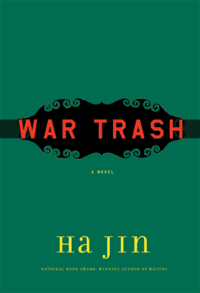
Ha Jin’s new novel, War Trash, is the fictional memoir of Yu Yuan, a young Chinese army officer sent with the “People’s Volunteers” to help the Communist side in the Korean War. Aside from its extraordinary aesthetic accomplishment, this is a riveting page-turner — leaping right into bloody firefights and foolish command decisions, forced marches and catastrophic defeats. When Yuan is finally captured by American soldiers, the novel finds its true and timely subject — the experience of Korean POWs in American camps. Because of his good command of English, Yuan soon becomes a pivotal translator in the power struggles between various POW factions — Communist and Nationalist — and their American jailors.
Outnumbered wardens, spiraling violence, the gradual dehumanization of both sides — the comparison to Abu Ghraib is unavoidable. POWs even demand that their American captors abide by the Geneva Conventions. Ha Jin brings to this chaos a serene moral clarity. He has so thoroughly researched the historical milieu that War Trash reads less like a deliberate exploration of the human condition — which it is — than stunned first-person reportage. There’s a blank neutrality to the gaze of his young narrator, recording everything and judging nothing. Ha Jin strikes a rare balance between the all-seeing detachment of the novelist and the particularity of a single character’s experience — a pitch-perfect blend of immediacy and lyrical beauty.
















